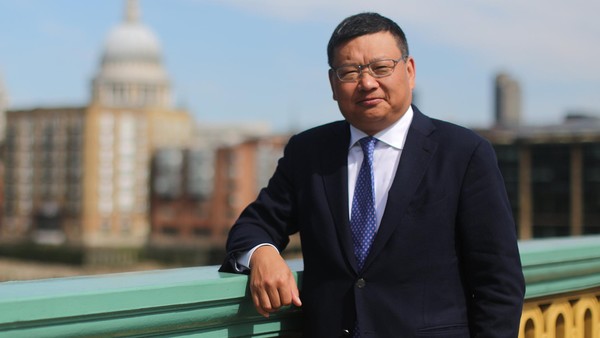
Bing Xiang has never really done things the way other business school deans do. While it is increasingly fashionable for MBAs to learn about the value at the “base of the pyramid” – the business opportunities in marketing to those billions of people who earn less than $2 a day – Prof Xiang is unashamedly elitist. His students are, he says, at the “top of the pyramid,” the world’s business elite.
Which is perhaps unsurprising given the heritage of CKGSB (Cheung Kong Graduate School of Business), the Beijing-headquartered business school that Prof Xiang established 12 years ago. It was China’s first privately-owned business school, and these days is undoubtedly the most well-known private Chinese institution outside the country.
Most of which can be attributed to Prof Xiang’s personal marketing of the school and his ability to entice many top western business leaders to work with CKGSB. Business schools have been more reticent. The dean’s aspiration to launch Executive MBA programmes in 2013 with two top business schools, one in Europe and one in the US, did not materialise as predicted. However, in March this year the dean announced that CKGSB would be running an EMBA with IMD in Switzerland, which, like the Chinese school, focuses on high level executives.
In selling the school Prof Xiang is persuasive, and the changing balance in the world economy, and in the rise of China, clearly plays into his hands. Chinese business schools are changing rapidly too, he says.
While the first model of business education in China was importing knowledge from the West, and the second model was working with western business schools on courses centred on China, Chinese business schools are now beginning to address global issues, says Prof Xiang. These include the disruption of technology and the creation of new business models.
His particular mission is to end what he calls the “collective myopia” on issues such as the environment, brought about by short-termism. “How do we develop the next generation of business leaders with a long-term view?” he asks. “With the economic rise of China, I think the East should step up to address these issues. The East has been taking a nap for a long time.”
These are issues on which he clearly believes European and American business schools will have to work with Asian institutions. “Not a single school is going to be powerful enough to cover all the issues.”
But he goes further in saying that even the world’s top business schools are going to have to change. In his view there will eventually be just three to five top schools in the US, Europe and Asia that will be truly global. “That’s the picture I have. There will be a real shake-up coming. If you change it will be the best time. If you don’t change it will be the worst time.”
Central to his argument is that most business schools still rely on old models of business and work with established companies. “We pay a lot of attention to GE, IBM or Goldman Sachs. In China these companies are not mainstream now. We [business schools] are fighting too hard for [a piece of] the shrinking pie.” How business schools help new businesses will have a profound impact on business schools for generations to come, he concludes.
Another one of his themes is that the continued rise of the Chinese economy will be dependent on innovation. He predicts that just as Silicon Valley attracts innovators today, “China will be the most important centre for innovation for the coming decades. It is a whole new game.”
Though Prof Xiang continues to be characteristically outspoken and shows little respect for many of the sacred cows of the business education world, nonetheless many of the developments at CKGSB over the past few years have been to align the school with the established orthodoxy.
Once totally dismissive of the role of accreditation and business school rankings, Prof Xiang is now more equivocal on these issues. And while the school started life as one which focused on teaching and eschewed academic research, that is also changing. “World class research is essential for the long-term sustainability of the school,” the dean now believes.
Because he is competing on the open market to attract top professors, he has also had to emulate the tenure system, which is commonplace in the US. At CKGSB professors are given 10-year contracts that are automatically renewed. And the governance system has changed, too, with the faculty deciding who will be employed at the school.
“Faculty governance is essential for us to attract full-time residential, world-class faculty,” concedes Prof Xiang. “Faculty want to work for an institution where they can select their colleagues.”
But Prof Xiang has not given up on his original mission to educate those at the “top of the pyramid”. The disruption brought about by the latest technology and social change means even top executives need education, he points out. “No matter how important you are, you need to go back to school.”
This article originally appeared here.